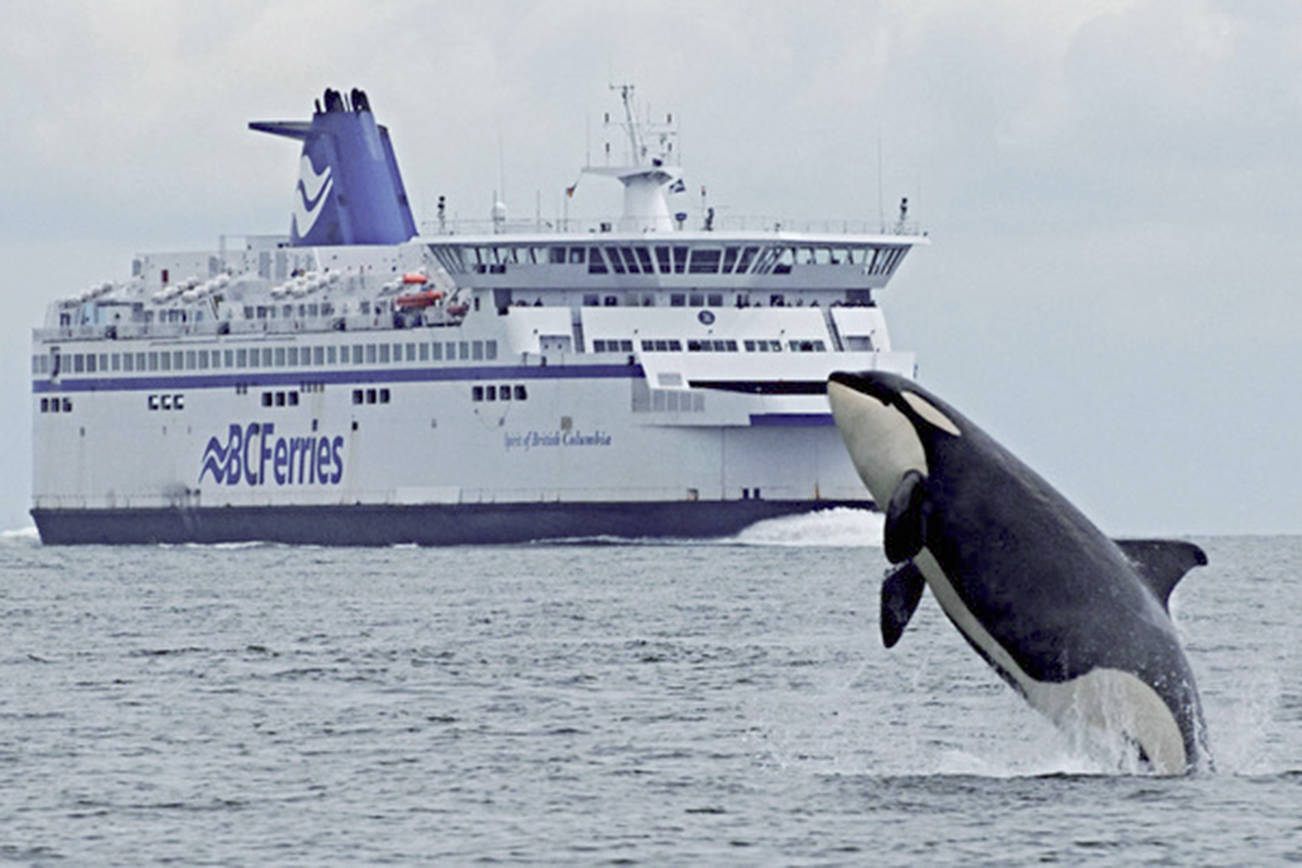Submitted by SeaDoc Society
Just as we navigate our world primarily through vision, whales depend on sound. Large baleen whales use it to communicate over huge distances and resident killer whales use it to find and catch salmon. Underwater, sound travels farther and faster than in air. Unfortunately out oceans have become noisy places and are getting even noisier. Boats from large shipping vessels to private motor boats makes it harder for whales to communicate by sound and decreases the range at which they can detect their prey using echolocation. Herring, juvenile salmon, and even invertebrates like crabs can be affected by ocean noise.
Dr. Rob Williams, a Pew Fellow in Marine Conservation, is an expert on ocean noise and how it affects marine wildlife. On Tuesday, Jan. 9 at 7 p.m. he will give a free lecture at the Emmanuel Parish Hall in Eastsound about ocean noise as a pervasive pollutant that can affect multiple marine species and even ecosystems. Williams will discuss how sound impacts marine animals and what we can do to reduce underwater sound in our oceans.
The 2017-2018 Marine Science Lecture Series is presented by the SeaDoc Society and YMCA Camp Orkila. It is designed to inspire the general public and to highlight the amazing fish and wildlife of our region. Lectures are free.
The lecture series is presented by The SeaDoc Society and YMCA Camp Orkila. It has been made possible through sponsorship by The Averna Family (Deer Harbor Charters), Barbara Bentley, Barbara Brown, Emmanuel Episcopal, Audrey and Dean Stupke, Orcas Community Foundation and West Sound Marina. For more info, visit http://www.SeaDocSociety.org.



